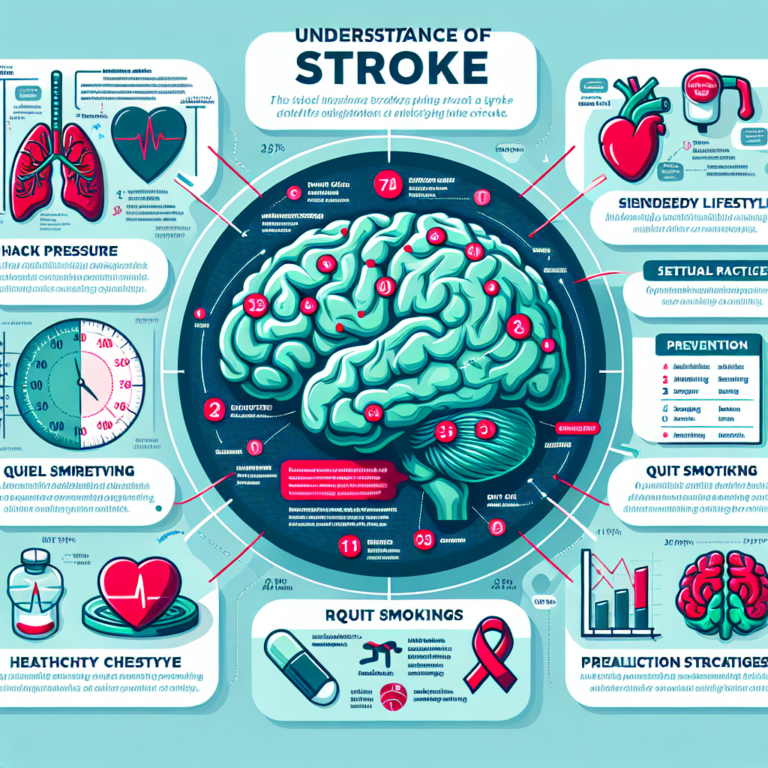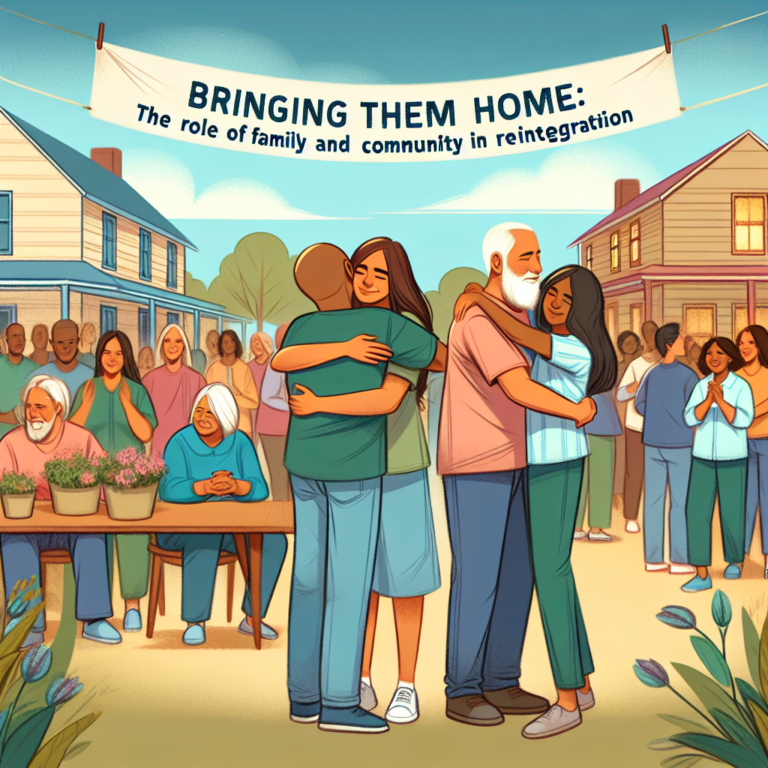
Introduction
In a world increasingly aware of the interconnectedness of mind, body, and spirit, the paradigm of healing is undergoing a significant transformation. “Healing Beyond Medicine: The Impact of Patient Advocacy on Holistic Care” captures a vital essence of modern healthcare. It highlights not only the physiological responses to medical interventions but also the profound influence of emotional, social, and environmental factors on healing.
Patient advocacy has emerged as a cornerstone of this holistic approach, opening doors to comprehensive health strategies that address individual needs and circumstances. This article delves into the multifaceted role of patient advocacy and its vital impact on holistic care, inspiring a deeper understanding of the importance of healing beyond conventional medicine.
The Essence of Holistic Care
Understanding Holistic Care
Holistic care transcends traditional medical treatment by considering the whole person. It involves integrating physical, emotional, social, and spiritual dimensions into patient care, facilitating a more complete healing process.
Table 1: Key Components of Holistic Care
| Component | Description |
|---|---|
| Physical | Addresses bodily health through medical care |
| Emotional | Focuses on mental well-being and emotional support |
| Social | Involves community, relationships, and social networks |
| Spiritual | Considers beliefs, values, and purpose |
The Rise of Patient Advocacy
Patient advocacy empowers individuals to take an active role in their healthcare decisions. Advocates help navigate the complexities of the healthcare system, ensuring that patients’ needs and preferences are understood and prioritized. This approach aligns seamlessly with holistic care philosophies by fostering collaborative partnerships between patients and healthcare providers.
The Symbiosis of Patient Advocacy and Holistic Healing
How Patient Advocacy Enhances Holistic Approaches
Empowerment Through Information: Patient advocates provide crucial information that enables individuals to understand their diagnoses better and the various treatment options available. By promoting informed decision-making, advocates help patients engage actively in their health journeys.
Personalized Care: Patient advocacy helps to tailor healthcare to individual needs, preferences, and values. This personalization aligns perfectly with holistic care, ensuring that all aspects of a person’s life are considered in their healing process.
- Emotional and Social Support: Advocates often help patients access emotional and social resources, creating support networks that enhance recovery. These connections can greatly influence stress levels and overall well-being, critical components of holistic health.
Case Study: The Role of Advocates in Cancer Care
In a recent study conducted at a major cancer treatment center, patient advocates played a pivotal role in guiding patients through their treatment journeys.
Analysis
Patients who engaged with advocates reported a higher sense of control over their healthcare decisions and noted improved emotional well-being. The advocates ensured that patients were informed about treatment options, side effects, and nutritional support, exemplifying the healing beyond medicine approach.
Bridging the Gap: Communication and Collaboration
Navigating Patient-Provider Relationships
Effective communication is fundamental to successful advocacy. Advocates help bridge the gap between patients and healthcare providers, ensuring both parties are on the same page.
How Communication Impacts Healing
Open Dialogue: Clear communication leads to better understanding, reduced anxiety, and increased satisfaction with care.
Collaborative Goals: When patients articulate their values and preferences, healthcare providers can align treatments with these goals, enhancing the healing process.
- Feedback Loops: Advocates facilitate ongoing feedback between patients and providers, ensuring that care plans remain adaptive to changing needs.
Case Study: The Impact of Communication in Chronic Disease Management
In a study focused on diabetes management, healthcare teams incorporated patient advocates to enhance communication strategies.
Analysis
Patients involved in the advocacy program demonstrated improved adherence to treatment plans and lower HbA1c levels. This case underscores how fostering communication through advocacy directly contributes to holistic health improvements.
The Emotional and Psychological Aspects of Healing
Addressing Mental Health in Holistic Care
The emotional health of patients is just as crucial as their physical well-being. Advocacy plays a vital role in ensuring that mental health is part of the healing equation.
Strategies for Emotional Advocacy
Access to Mental Health Resources: Advocates guide patients in accessing mental health support, whether through therapy, support groups, or wellness programs.
Crisis Management: In times of emotional crisis, advocates provide essential support and guidance, enabling patients to navigate their feelings and health challenges.
- Creating Safe Spaces: Advocates empower patients to express their fears, uncertainties, and triumphs, creating a space conducive to healing.
Case Study: Supporting Mental Health in Chronic Pain Patients
A community health initiative targeted chronic pain sufferers, integrating advocates to provide emotional support alongside medical care.
Analysis
Patients reported feeling more understood and less isolated, which positively influenced their pain management and overall quality of life. This highlights the need for addressing emotional factors as part of a holistic approach.
Building a Supportive Community
The Role of Peer Advocacy
Peer support plays a significant role in holistic healthcare, helping patients feel less isolated in their experiences. Advocates foster connections between patients, encouraging shared experiences and emotional understanding.
Community Resources and Referrals
Resource Connection: Advocates connect patients to community resources—nutritionists, therapists, exercise programs—which enhance overall wellness.
- Education and Outreach: Engaging in community education broadens awareness of health issues, empowering patients to take proactive steps in their wellness journeys.
Case Study: Community-Based Advocacy Programs
A grassroots initiative in an underserved community undertook to form a network of patient advocates for chronic illness management.
Analysis
This program provided significant resources and education, resulting in improved health outcomes and community resilience. The case exemplifies the necessity of creating supportive ecosystems for holistic healing.
Policy and System Change Through Advocacy
Advocating for Systemic Improvements
Beyond individual patient care, advocacy also extends to policy change, impacting holistic healthcare at a systemic level.
Shaping Health Policies for Holistic Approaches
Healthcare Reforms: Advocates push for policies that prioritize holistic approaches in healthcare systems, paving the way for wider acceptance of integrative practices.
Funding and Resources: Through advocacy, communities can secure funding for holistic health programs, promoting wider access to comprehensive care.
- Cultural Competency: Advocates push for training that emphasizes cultural competency among healthcare providers, facilitating better individualized care.
Case Study: Policy Influence on Holistic Healthcare
Advocacy groups have successfully lobbied for the inclusion of complementary therapies in state healthcare programs.
Analysis
The resulting policy changes have increased patient access to holistic therapies, illustrating how advocacy can effect significant changes in healthcare access and delivery.
Conclusion
The journey of healing is undoubtedly multifaceted, and "Healing Beyond Medicine: The Impact of Patient Advocacy on Holistic Care" illustrates the significance of integrating advocacy into patient experiences. Empowering patients, enhancing communication, and fostering community connections are crucial components that elevate healthcare from a transactional process to a transformative journey.
As we move forward, embracing holistic care through patient advocacy is essential for a future where individuals are not just passive recipients of medical treatment but active participants in their healing journeys. Let this article inspire healthcare professionals, patients, and advocates alike to champion the cause of holistic care, nurturing a healthcare landscape that truly honors the human experience.
FAQs
1. What is holistic care?
Holistic care addresses the entire person—body, mind, spirit, and emotions—rather than focusing solely on disease or symptoms.
2. How can patient advocates help me?
Patient advocates can provide guidance, information, resources, and emotional support, ensuring you have a voice in your healthcare decisions.
3. What role does communication play in holistic care?
Effective communication fosters understanding between patients and providers, facilitating collaborative decision-making and personalized care.
4. How does emotional support impact healing?
Emotional support can reduce stress, improve adherence to treatment plans, and enhance overall well-being, crucial for the healing process.
5. Can advocacy lead to systemic changes in healthcare?
Yes, advocacy can influence policies and practices to incorporate holistic approaches, leading to broader access to comprehensive care options.
The intertwining of patient advocacy and holistic healthcare signifies a profound shift in how we perceive healing—one that respects and nurtures the entire human experience. Let us champion these changes together, ensuring healing truly goes beyond the medicine.















